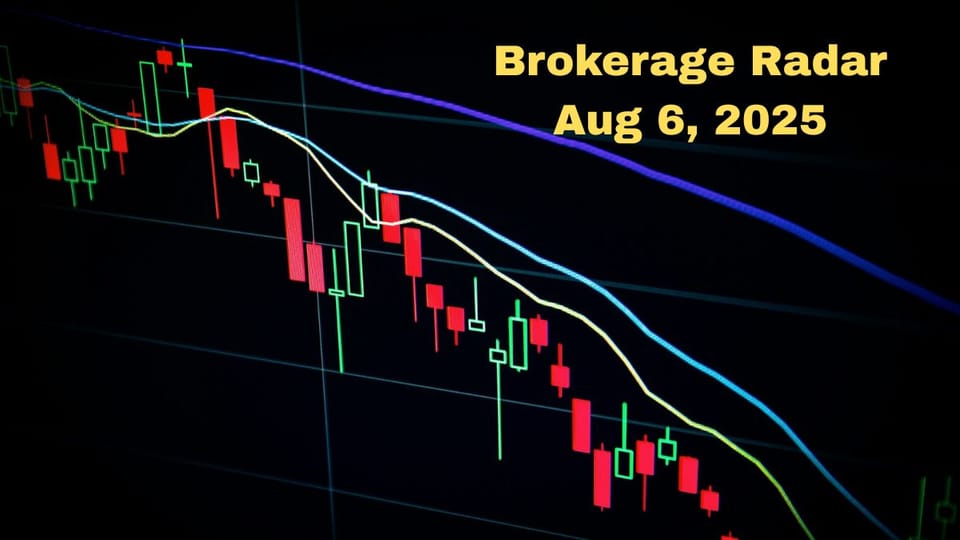Why stock market is down today: Key reasons behind July 31 decline and stocks in focus

Indian equity markets started the last trading session of July on a weak note, with benchmark indices showing subdued performance amid heightened global uncertainty, sector-specific concerns, and mixed corporate earnings. As of mid-day on July 31, the Nifty 50 and Sensex were trading lower, while broader market sentiment was also cautious.
The weakness follows a confluence of global macro pressures, geopolitical developments, and earnings volatility across sectors. Investors are evaluating the implications of former U.S. President Donald Trump’s tariff announcement and its expected impact on India’s trade-sensitive sectors, while tracking company-specific performance from the latest Q1FY26 results.
Key reasons behind market weakness on July 31
1. Tariff uncertainty and U.S.-India trade tensions
One of the dominant themes affecting market sentiment is the announcement by Donald Trump of a 25% tariff on Indian goods, raising concerns over the impact on exports across several industries. The lack of clarity on product-specific exemptions, especially for pharmaceuticals and IT, has added to investor unease.
According to CLSA, the move could call into question India's position as a global safe haven, especially amid its balancing act between the U.S. and Russia. Sectors such as electronics exports, energy, and pharma have been highlighted as vulnerable under the tariff-plus-penalty scenario. CLSA also warned that FII flows may decline due to the increased geopolitical complexity and that India's refining margins could be impacted by supply disruptions stemming from constrained Russian crude flows.
Elara Securities noted that India’s GDP growth could face a 30 basis points impact if no trade agreement is reached. Sectors mentioned include auto ancillaries, gems and jewellery, industrial machinery, and pharma. At the same time, some companies in the IT sector could benefit from currency depreciation.
Nuvama said that while India’s goods exports to the U.S. may be affected, the impact is small relative to GDP and could be cushioned by re-routing exports. The brokerage highlighted that INR weakness may help limit the effect of tariffs.
2. Corporate earnings: mixed Q1 performance
Several companies have reported Q1FY26 earnings over the past 48 hours. The market has responded strongly to earnings that either exceeded or missed expectations. Companies that beat estimates on margins and profits saw investor interest, while those missing consensus saw corrective reactions.
Stocks in focus on July 31
Brokerage Views
- Navin Fluorine (CITI): CITI maintained a Sell rating on Navin Fluorine with a target of ₹4,750. The brokerage noted that the Q1 EBITDA was up 2.1x YoY and 16% QoQ, with margins improving to 28.5% from 19.2% YoY. While the quarter beat estimates due to better margins, CITI said the stock already factors in much of the upside, with YTD gains of 60%.
- M&M (CITI): CITI retained a Buy rating with a TP of ₹3,700. Q1 results were largely in line, and demand outlook remains strong, especially in the rural segment. Product launches and BEV models remain key triggers.
- InterGlobe Aviation / IndiGo (CITI): CITI maintained a Buy rating with TP ₹6,500, noting that Q1 missed estimates due to lower yields. Management commentary indicated a pickup in July and steadying yields for August–September.
- Indus Towers (CLSA): CLSA retained High Conviction Outperform with TP ₹595. While reported EBITDA was flat, adjusted EBITDA was up 14% YoY. Tenancy additions were slightly below estimates. The board deferred buyback/dividend decisions pending inorganic opportunity evaluations.
- PNB (CLSA): CLSA maintained an Outperform rating and raised the TP to ₹130. Q1 PBT beat by 5%. NIM moderation was limited, while asset quality and loan/deposit growth were seen as better than several peers.
- IGL (CLSA): CLSA maintained an Outperform rating with TP ₹210. Q1 PAT was ahead of estimates by 13% on higher unit margins, though volumes were marginally below forecasts.
- BEL (Nuvama): Nuvama maintained a Buy rating and raised the TP to ₹465. Q1 order inflows were ₹7,630 crore, with a backlog of ₹74,900 crore. FY26 guidance on order inflows and margins remains intact.
- Avenue Supermarts (Nuvama): Nuvama maintained a Hold rating and raised TP to ₹4,544. The brokerage highlighted aggressive store expansion in North India and revised valuation using SOTP methodology.
- Tata Motors (Nuvama): Nuvama maintained a Reduce rating with TP ₹670. The Iveco acquisition at €3.8 billion is seen as moderately EPS accretive, but near-term concerns remain around EU and US commercial vehicle market cycles.
- Pharma Sector (CLSA): In a note on Trump tariffs, CLSA highlighted that most pharma companies expect generic drugs to be excluded, but if included, they may consider price hikes. Companies with high U.S. revenue share include Aurobindo (48%), Zydus (47%), Dr Reddy’s (46%), Lupin (38%), Sun Pharma (33%), and Cipla (30%).
Company Results and Developments
- Tata Steel: Q1 results came in above estimates, with India EBITDA/tonne at ₹15,240 vs a poll of ₹14,500. Performance was supported by improved realizations and cost control.
- M&M: Q1 results were in line. Growth guidance was retained. Product launches remain on track.
- Tata Motors: Announced acquisition of Iveco’s non-defence business for €3.8 billion. The company highlighted strategic value in global CV markets.
- Jio Financial Services: Promoters to invest ₹15,825 crore via a preferential issue at ₹316.50/share for a 7% stake post-issue.
- Kaynes Technology: Q1 EBITDA grew 69% YoY. Margins beat estimates.
- Navin Fluorine: Reported 38.5% YoY revenue growth, margin improvement to 28.5%, and net profit of ₹117.2 crore vs ₹51.2 crore YoY.
- Sagility India: Net profit rose to ₹1.86 billion from ₹222 million YoY. Margin expanded to 22.4%. EBITDA nearly doubled to ₹2.84 billion.
- ITD Cementation: EBITDA up 5.2%, net profit rose 37% YoY.
- JB Chemicals: Q1 EBITDA grew 7.5%, revenue rose 9% YoY.
- CAMS: Missed Q1 estimates. Net profit fell to ₹1.09 billion from ₹1.14 billion QoQ. EBITDA margin contracted to 43.56% from 44.75%. Stock was down nearly 5%.
- IndiGo: Q1 profit dropped 20% YoY. Yields fell in May–June. High cancellations and geopolitical factors impacted performance.
- Indus Towers: Tenancy additions came in below estimates. Profit declined 2.4% QoQ.
- IGL: Revenue and volume declined QoQ. EBITDA margin improved to 28.5%.
- Hitachi Energy: Q1 net profit at ₹131.6 crore vs ₹10.4 crore YoY. Revenue up 11.4%. EBITDA at ₹155 crore vs ₹47.9 crore YoY. Stock fell post-results.
- Zen Technologies: Stock opened at 5% lower circuit for the fourth consecutive session following Q1 results. Buying was seen during the day.
The decline in Indian markets on July 31 is driven by a combination of global trade-related uncertainty, selective earnings disappointments, and cautious sentiment around foreign inflows. While some companies have reported strong operational results and continue to attract attention, the broader market remains affected by the potential fallout from U.S. tariffs and the evolving geopolitical situation.
The rest of the week will be closely watched for global macro data, follow-through earnings, and any updates on U.S.-India trade developments.
Date and time: Article written at 10:50AM, July 31, 2025.
Disclaimer: The views expressed in this article are based on brokerage reports, company filings, and market data. This article does not constitute investment advice. Please consult your financial advisor before making any investment decisions.




